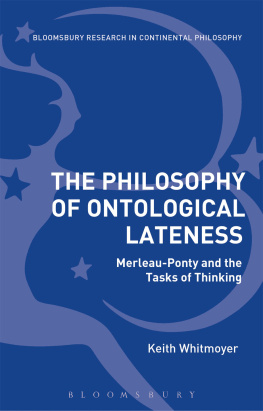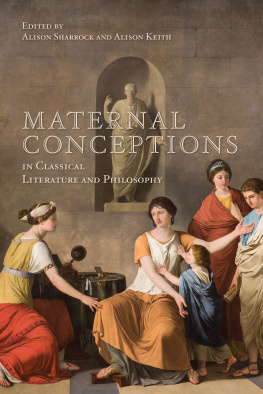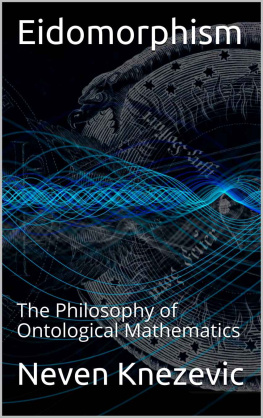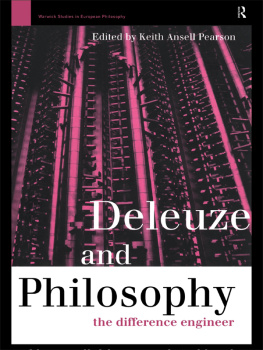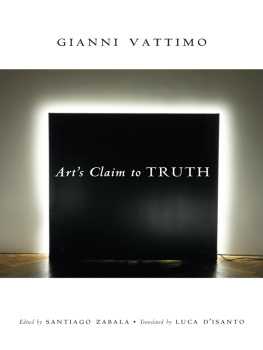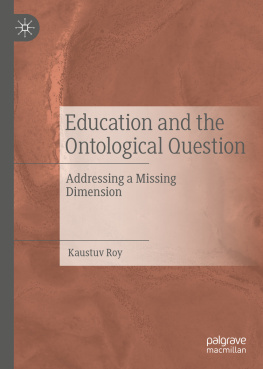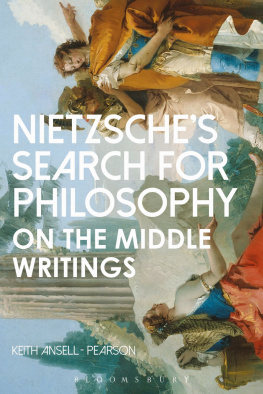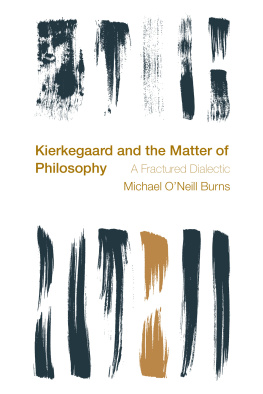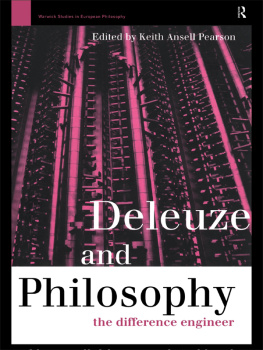Keith Whitmoyer - The Philosophy of Ontological Lateness
Here you can read online Keith Whitmoyer - The Philosophy of Ontological Lateness full text of the book (entire story) in english for free. Download pdf and epub, get meaning, cover and reviews about this ebook. year: 2017, publisher: Bloomsbury UK, genre: Science. Description of the work, (preface) as well as reviews are available. Best literature library LitArk.com created for fans of good reading and offers a wide selection of genres:
Romance novel
Science fiction
Adventure
Detective
Science
History
Home and family
Prose
Art
Politics
Computer
Non-fiction
Religion
Business
Children
Humor
Choose a favorite category and find really read worthwhile books. Enjoy immersion in the world of imagination, feel the emotions of the characters or learn something new for yourself, make an fascinating discovery.
- Book:The Philosophy of Ontological Lateness
- Author:
- Publisher:Bloomsbury UK
- Genre:
- Year:2017
- Rating:5 / 5
- Favourites:Add to favourites
- Your mark:
- 100
- 1
- 2
- 3
- 4
- 5
The Philosophy of Ontological Lateness: summary, description and annotation
We offer to read an annotation, description, summary or preface (depends on what the author of the book "The Philosophy of Ontological Lateness" wrote himself). If you haven't found the necessary information about the book — write in the comments, we will try to find it.
The Philosophy of Ontological Lateness — read online for free the complete book (whole text) full work
Below is the text of the book, divided by pages. System saving the place of the last page read, allows you to conveniently read the book "The Philosophy of Ontological Lateness" online for free, without having to search again every time where you left off. Put a bookmark, and you can go to the page where you finished reading at any time.
Font size:
Interval:
Bookmark:

The Philosophy of
Ontological Lateness
Also available from Bloomsbury
Merleau-Ponty and the Paradoxes of Expression , Donald A. Landes
Merleau-Pontys Existential Phenomenology and the Realization of Philosophy , Bryan A. Smyth
Merleau-Ponty and Theology , Christopher Ben Simpson
Art, Language and Figure in Merleau-Ponty , Rajiv Kaushik
The Merleau-Ponty Dictionary , Donald A. Landes
The Philosophy of
Ontological Lateness
Merleau-Ponty and the Tasks of Thinking
Keith Whitmoyer
Bloomsbury Academic
An imprint of Bloomsbury Publishing Plc

Contents
I would like to thank Ann Murphy for her generous help in revising and commenting on the manuscript for this work. I would also like to thank Tom MacCary for his help and support, especially with Ancient Greek. Finally I would especially like to thank Leonard Lawlor for his support and assistance over the years and in my study of Merleau-Ponty. Any errors are those of the author.
Works by Merleau-Ponty
PHP . Translated by Colin Smith. London: Routledge, 2006.
HT . Translated by John ONeill. Boston: Beacon Press, 1969.
SNS . Paris: Les Editions Nagel, 1948; Sense and Non-sense . Translated by Hubert L. Dreyfus and Patricia Allen Dreyfus. Evanston: Northwestern University Press, 1964.
C . Translated by Oliver Davis. London: Routledge, 2004.
EP loge de la philosophie et autres essais . Paris: Les ditions Gallimard, 1953; In Praise of Philosophy and Other Essays . Translated by John Wild and James M. Edie. Evanston: Northwestern University Press, 1988. Inaugural address at the Collge de France.
MSME . Geneva: Metis Presses, 2011.
IP Linstitution La passivit: Notes de cours au Collge de France (19541955). Paris: Belin, 2003; Institution and Passivity: Notes from the Collge de France . Translated by Leonard Lawlor. Evanston : Northwestern University Press, 2010.
RC . Edited by James Edie and John ONeill John Wilde. Evanston: Northwestern University Press, 1963.
NC . Edited by Stphanie Mnas. Paris: Gallimard, 1996.
S . Translated by Richard McCleary. Evanston: Northwestern University Press, 1964.
OE , by Galen Johnson, 12149. Evanston: Northwestern University Press, 1993.
VI . Edited by Claude Lefort. Translated by Alphonso Lingis. Evanston: Northwestern University Press, 1968.
Works by other authors
ZB Husserl, Edmund. Vorlesungen zur Phnomenologie des inneren Zeitbewutseins . Halle: Max Niemeyer Verlag, 1928; (18931917). Translated by John Barnett Brough. Dordrecht: Kluwer Academic Publishers, 1991.
SZ Heidegger, Martin.. Translated by John Macquarrie and Edward Robinson. Oxford: Blackwell, 1962.
EN Sartre, Jean-Paul.. Translated by Hazel Barnes. New York: Washington Square Press, 1952.
Philosophy finds its source in a certain kind of anxiety. Plato, for example, seems to have been worried about the apparent irreconcilability of the permanence and transience of being. No two couches are absolutely identical. They come into being and pass away, and yet nonetheless partake in some manner of subsistence since they remain, nonetheless, couches. On a certain reading, Plato appears fixated on this concern, borrowed from Parmenides, about the exclusion of becoming from being. To put this worry to rest, Plato establishes a system in which that which is never identical with itself but always on the way to its other is regulated by that which is always what it is and never otherwisebeing as such, the . How we interpret a philosopher often stems from how we perceive the anxiety often standing silently at the center of his or her thought.
The anxiety that seems to have motivated Merleau-Pontys philosophyat least from Phenomenology of Perception onward For Merleau-Ponty, the word ambiguity is set in opposition to this Cartesian need for absoluteness and security.
The problem with knowledge in this sensethe reason it seems to have disturbed Merleau-Ponty and perhaps should also disturb usis that epistemologys place as first philosophy and everything entailed therein stems from fear rather than love.it with mathematical precision, when we look with our eyes, recedes into the opacity of an infinite distance. Because the world gives itself to us in this elusive manner, we doubt and then seek out that Archimedean point, that place of unassailable security. We philosophize because we want the apparent chaos of experience to be resolved in the : the final pulling back of the veil, the revelation of the benevolent , the word, the reason itself.
But this desire for absoluteness, for security, which in Descartes expressed itself as a desire for that which is beyond doubt, as we know all too well, comes at a cost. Merleau-Ponty calls this wish cruel thought, and his description of this style of thinking gives us some indications of what he thought that cost was and why we should be concerned about it. The narrator succumbs to this Cartesian desire: to be beyond doubt. He wishes to find Albertine right where she is, to discover the Archimedean point that would unlock her absolute source, her essence. In this way, he desires a kind of punctuality, to be on time, for as it is, when he arrives on the scene, it is as if she has already fled, concealed within her impossessable consciousness. Wherever and whenever he finds Albertine, he always seems to be late, and her apparently constitutive withdraw is what leads him toward the jealousy and inquisitorial domination that drive her away.
This scene from the Recherche could be taken as a metaphor for the kind of thinking that worries Merleau-Ponty. In its search for an unassailable certainty, cruel thought seeks to arrive on time to being, to find it right when and where it is in its incontestable finality and presence. From Phenomenology of Perception to The Visible and the Invisible , Merleau-Pontys philosophical work was oriented toward articulating another mode and style for philosophizing that overcomes this cruel, Cartesian fear. I call this style of thought a philosophy of ontological lateness. Like Prousts narrator, arriving at the advent of being remains perpetually beyond reflections reach for it arrives on the scene too late.
There are two senses of lateness at play here, both of which operate within the designation philosophical interrogation, which Merleau-Ponty worked to define and mobilize against this cruel, inquisitorial thought. First is the former just describedthe lateness of reflection to the presence of being. This is not an incidental weakness that could be overcome by placing being under a clearer light or at a better angle. Nor can it be overcome through reflections reinvention. This weakness, rather, is a function of a second, more fundamental sense of lateness: the lateness of becoming to being. When philosophical reflection arrives on the scene, already too late, it does not find what it expected. If we follow a truly rigorous methodthat of
In contrast to the cruel thought that seeks its own dissolution in the fullness of being, phenomenology, understood as a philosophy of ontological lateness, discloses the impossibility of completeness and therefore the impossibility of its dissolution. Phenomenology, in this way, as Husserl said and Merleau-Ponty liked to repeat, is a process of perpetual beginning, of renewal, and this precisely in virtue of its lateness. It is a love present at the point of departure. It means not only loving what escapes because of and in its withdraw but loving the escape itself. What is required for this love is not knowledge in the sense outlined abovenot clarity, distinctness, and apodicticitybut , the kind that Prousts narrator lacked, the faith we demonstrate when we no longer take knowing as our project, when we let the otherAlbertine, beingwithdraw, when we allow for the , the veiling, of the : when we let the other die.
Font size:
Interval:
Bookmark:
Similar books «The Philosophy of Ontological Lateness»
Look at similar books to The Philosophy of Ontological Lateness. We have selected literature similar in name and meaning in the hope of providing readers with more options to find new, interesting, not yet read works.
Discussion, reviews of the book The Philosophy of Ontological Lateness and just readers' own opinions. Leave your comments, write what you think about the work, its meaning or the main characters. Specify what exactly you liked and what you didn't like, and why you think so.

